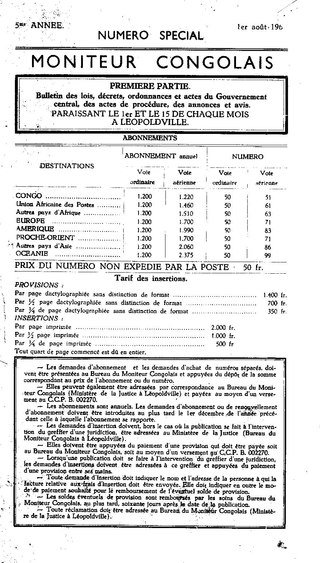Related Research Articles
"La Zaïroise" was the national anthem of Zaire, from 1971 to 1997. The lyrics were written by Joseph Lutumba, and the music was composed by Simon-Pierre Boka Di Mpasi Londi.
Antoine-Roger Bolamba, later Bolamba Lokolé J'ongungu, was a Congolese journalist, writer, and politician. He edited the monthly journal La Voix du Congolais from 1945 until 1959. He also served as Secretary of State for Information and Cultural Affairs of the Republic of the Congo in 1960 and then as Minister of Information and Tourism from 1963 until 1964.

The Makombo massacre took place from 14 to 17 December 2009 in the Haut-Uele District of Democratic Republic of the Congo in the village and region of Makombo. Human Rights Watch (HRW) believes the attacks, which killed 321 people, were perpetrated by the Lord's Resistance Army (LRA), which denied responsibility.

Kisolo is a traditional mancala game played by the Luba, Lulua and Songye peoples of DR Congo, Zambia and Zimbabwe. It is closely related to other East African mancalas such as Bao, Bao Kiarabu, Coro and Isolo.
Mulwewa was a mission founded by White Fathers missionaries on the west side of Lake Tanganyika, in what is now the Democratic Republic of the Congo. It is at Massanze, near Uvira.

Justin-Marie Bomboko Lokumba Is Elenge, was a Congolese politician and statesman. He was the Minister of Foreign Affairs for the Congo. He served as leader of the Congolese government as chairman of the College of Commissioners. He also served as Foreign Minister for three different tenures: 1960–1963, 1965–1969, and again in 1981. Bomboko died from a long-illness in Brussels, Belgium, aged 85.
Vincent de Paul Lunda Bululu is a Congolese former politician. He served as the Prime Minister of Zaire from 5 July 1990 to 1 April 1991. He previously served as First State Commissioner of Zaire from 4 May 1990 to 5 July 1990. He attended the University of Lubumbashi and earned a Doctor of Laws degree.
Paul Bolya or Bolya Ifekwa Lobok'ete was a Congolese politician and leader of a faction in the nationalist movement in the Belgian Congo before independence.
Joseph-Georges Kasongo was a Tanganyikan-born Congolese lawyer, businessman, and politician who served as the first President of the Chamber of Deputies of the Republic of the Congo. He later held office as a deputy prime minister and as a senator.

The Luluabourg Constitution was the second constitution of the Democratic Republic of the Congo. Functional from 1 August 1964 until November 1965, it was meant to replace the basic law that had been provisionally enacted when independence was declared in 1960. Unlike its predecessor, the Luluabourg Constitution featured a strong executive presidency and carefully delineated federalism between the central government and the provinces. It also formalized the adoption of the name "Democratic Republic of the Congo", succeeding the name "Republic of the Congo".
Joseph Okito was a Congolese politician and close political ally to Patrice Lumumba who briefly served as Second Vice-President of the Senate of the Democratic Republic of the Congo. He was executed alongside Lumumba in Katanga in 1961.
Alphonse Songolo was a Congolese politician who served as the Republic of the Congo (Léopoldville)'s first Minister of Communications. He was a prominent member of the Mouvement National Congolais in Stanleyville and a close partner of Patrice Lumumba. However, in October 1960 he denounced Lumumba and was shortly thereafter imprisoned by pro-Lumumba authorities. He was executed in February 1961 in retaliation for the deaths of several pro-Lumumba politicians.

Mario-Philippe Losembe Batwanyele is a Congolese politician and diplomat. He is currently serving as the second vice president of the Senate of the Democratic Republic of the Congo.
Gilbert-Pierre Pongo was a Congolese politician and intelligence officer who briefly served as an inspector of the Sûreté Nationale of the fledgling Democratic Republic of the Congo and as a communications liaison. He oversaw the capture of deposed Prime Minister Patrice Lumumba in 1960. His role in the affair led to his execution by Lumumba's supporters in February 1961. He was also known for being the father of Congolese singer M'Pongo Love.

Isaac Kalonji Mutambayi was a Congolese Protestant minister and statesman who served as the President of the Senate of the Democratic Republic of the Congo from 1962 until 1965. He was one of the few politicians to serve the country continuously from its independence in 1960 until its democratisation in the 1990s.
Jean-Chrysostome Weregemere or Weregemere Bingwa Nyalumeke was a Congolese politician who led a faction of the Centre du Regroupement Africain. He served as Minister of Agriculture in the Congolese government from August 1961 until July 1962 and then as Minister of Justice until December 1962. Weregemere later held prominent positions in parastatals and sat on the central committee of the Mouvement Populaire de la Révolution from 1980 until 1985.
Nicolas Abel Bayona Ba Meya or Bayona Ba Meya Muna Kimvimba was a Congolese jurist who served as First President of the Supreme Court of Justice of Zaire from 1975 until 1983.
Bertin Mwamba or Mwamba Maleba Banze Kabombo is a Congolese politician who served as the third President of the Chamber of Deputies of the Democratic Republic of the Congo.
Alphonse Ilunga or Ilunga Dibwe Luakamanyabo is a Congolese politician.

Angèle Makombo-Eboum is a Congolese politician. She is president of the Ligue des Démocrates Congolais.